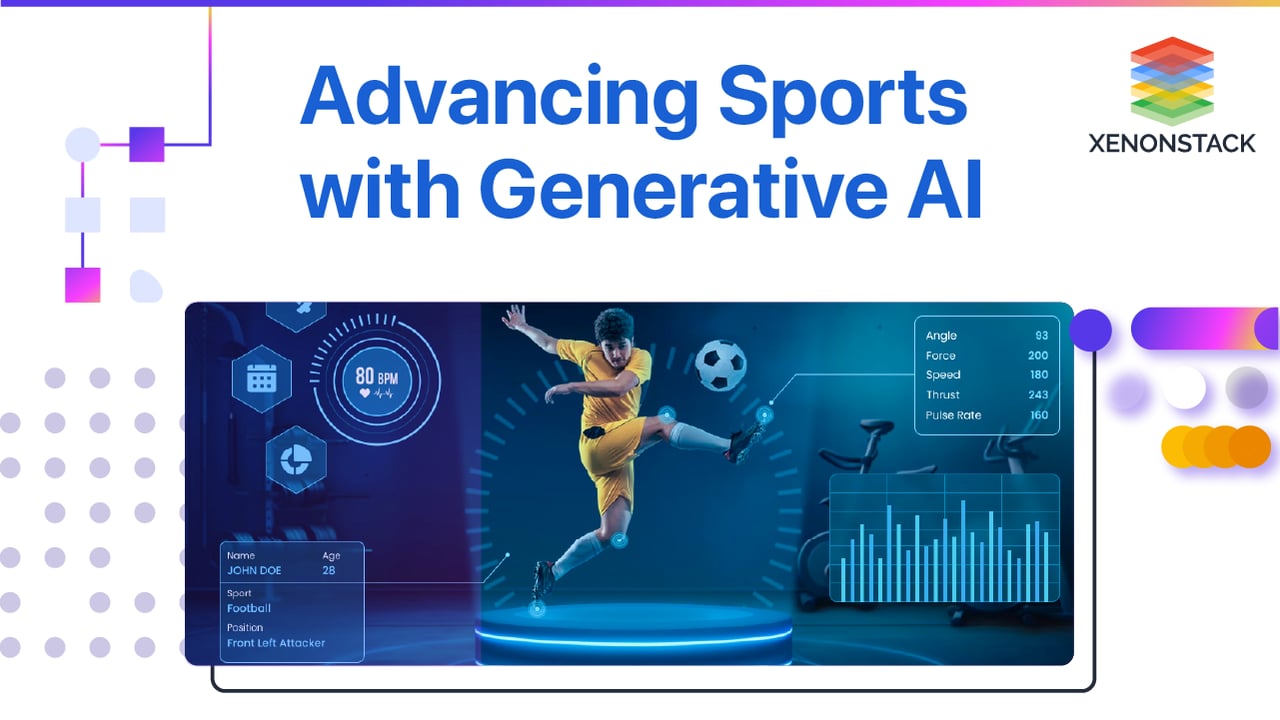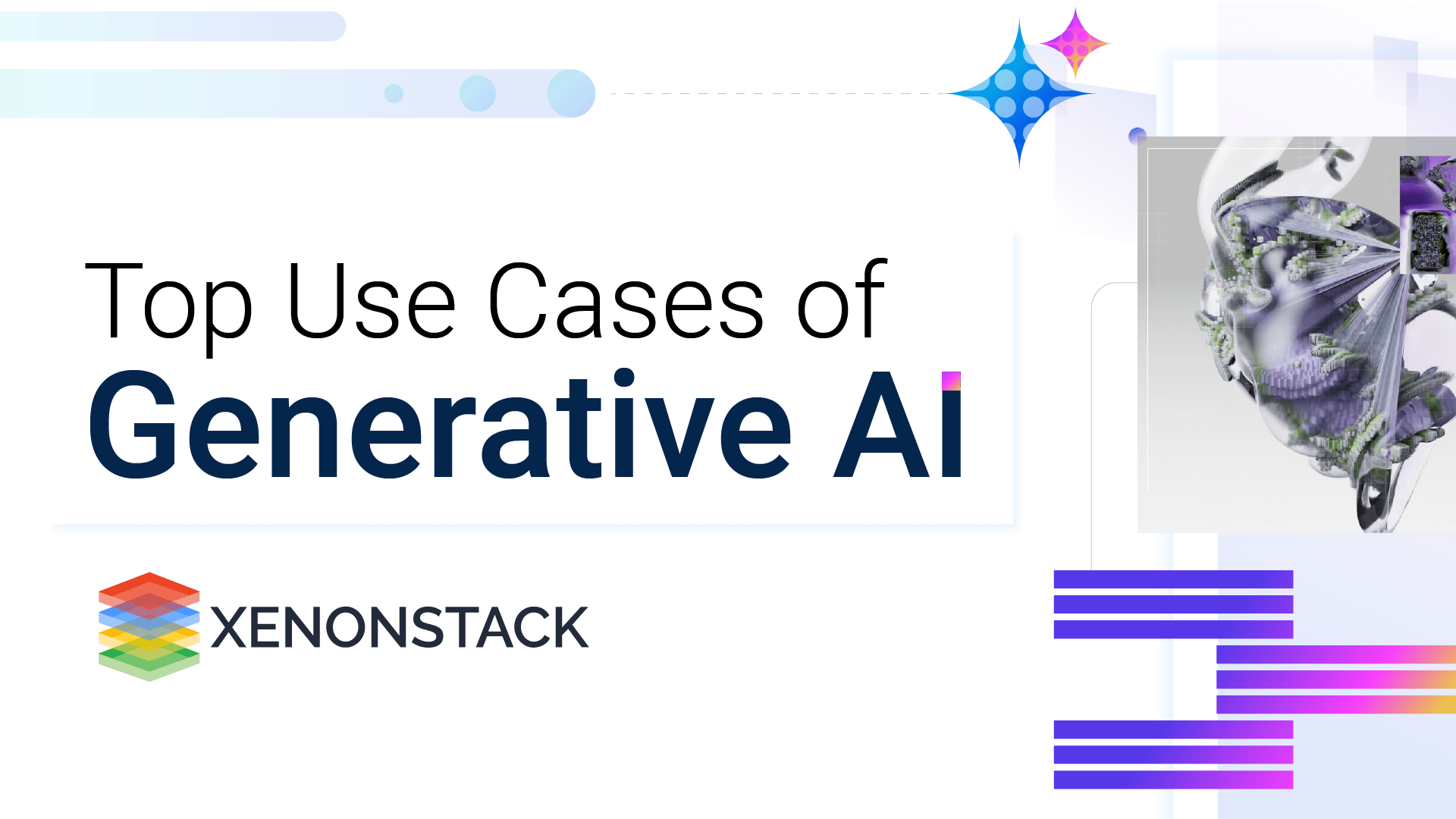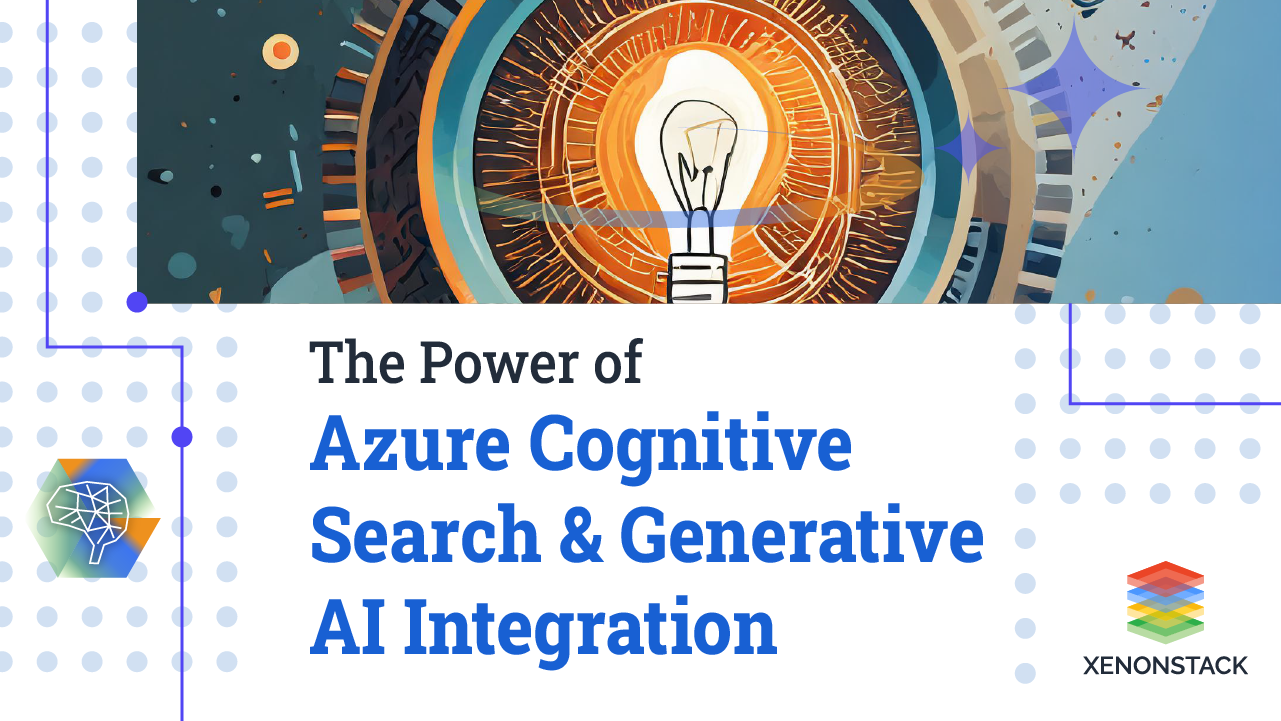
Introduction: The Dawn of Generative AI in Sports
At the forefront of a sports revolution, Generative AI combines data-driven insights with advanced machine learning capabilities. This transformative technology isn't just reshaping how athletes perform; it's redefining the entire sports experience for fans and stakeholders alike.
With Generative AI, sports are entering a new era of precision and personalization. Athletes benefit from optimized training regimens, injury prevention strategies, and deeper insights into their performance. Fans enjoy a more immersive and tailored experience, thanks to AI-driven content and interactions.
Applications of Generative AI in Sports
-
Injury Prediction and Prevention: Generative AI models can now predict the likelihood of injuries, offering athletes and teams the chance to implement preventative measures.
-
Decoding the Opposition: Understanding the strategy and weaknesses of opponents has been taken to the next level, enabling more strategic gameplay.
-
Emotional State Analysis and Athlete Well-being: Generative AI provides insights into athletes' psychological state, ensuring mental health is prioritized alongside physical.
-
Customized Training Regimens: Tailored training programs are designed to enhance performance and reduce injury risks, focusing on each athlete's unique needs.
-
Automating Game Analytics and Predictions: The power of AI is utilized to automate the analysis of game data, providing predictions and insights at a speed and accuracy beyond human capability.
-
Personalized Performance and Health Management: Generative AI is revolutionizing how athletes manage their performance and health, with wearable AI technologies offering real-time insights and guidance for optimal health and performance.
-
Enhancing Fan Engagement with AI: The fan experience is transformed through customized content and interactions, driven by AI's ability to understand preferences and deliver tailored content.
-
AI in Scouting and Recruitment: Generative AI can analyze performance data and predict future potential, the scouting and recruitment process become more efficient and accurate.
Performance and Strategy with Artificial Intelligence: A Game-wise Comprehensive Analysis
In sports, each discipline demands unique strategies, which are sculpted by the nature of the data available, the analysis required, the methods of engaging fans, and revenue generation. The application of Artificial Intelligence in sports offers a refined approach to developing strategies, enhancing player performance, and preventing injuries, among other benefits. Below are examples illustrating how AI can be utilized across different popular sports:
Football / Soccer / American Football
AI's role in football spans creating simulations to aid coaches in strategy development. For instance, AI can analyze large amounts of game data to simulate how an opponent might react to certain playing styles, offering insights into potential game outcomes. Furthermore, AI can create detailed player profiles by assessing match footage and performance stats, highlighting areas for improvement and predicting injury risks, which aids in crafting safer training routines.
Golf
AI significantly contributes to personal performance improvement in golf, such as through swing analysis. Imagine a golfer struggling with their swing; Generative AI can model it in detail, analyze it, and suggest adjustments to improve power and efficiency. Additionally, AI can help golfers strategize for specific courses by simulating various course conditions and offering advice on adjusting their game plan.
Cricket
AI's application in cricket includes the generation of simulations for batters and bowlers, allowing players to prepare for various bowling styles or batting techniques. For example, a batter can use AI to practice against virtual simulations of world-class bowlers to refine their technique. AI also assists in optimizing field placements based on historical data analysis, providing teams with strategic advantages.
Rugby
Rugby coaches can use AI to simulate various play strategies and assess their effectiveness against different teams, enhancing tactical planning. Additionally, AI analyzes player movements and game dynamics to suggest improving team formations and player positioning, optimizing in-game strategies and performance.
Basketball
AI aids basketball coaches by simulating game scenarios, enabling the formulation of effective play strategies and optimizing player positioning. For instance, AI can predict shot success rates by analyzing shooting techniques and helping strategize offensive plays. AI also plays a crucial role in player conditioning, recommending personalized training and recovery programs based on data analysis.
Tennis
AI helps in tennis by generating match simulations between players of differing styles, assisting in strategizing for upcoming opponents. It analyzes serve and stroke techniques, offering insights for improvement. Moreover, AI evaluates historical match data to develop strategies that exploit opponents' weaknesses or bolster a player's strengths.
Athletics (Track and Field)
In athletics, AI enhances performance through biomechanical analysis, identifying inefficiencies in techniques for events like sprinting or jumping. It also simulates training routines to design personalized programs that minimize injury risks and optimize recovery, which is essential for athletes' long-term success and health.
Swimming
Swimmers and coaches can leverage AI for stroke analysis, gaining feedback on improving efficiency and power generation. AI simulates races to inform pacing strategies, aiding in race plan formulation. Additionally, AI recommends tailored training regimens based on analysis of competition and training session data, focusing on enhancing specific performance aspects.
Ethical considerations around using Generative AI in sports
Ethical considerations surrounding the use of Generative AI in sports encompass a broad spectrum of concerns that touch upon privacy, fairness, and the well-being of athletes and fans:
Privacy Concerns
-
Collection and Utilization of Personal Data: Generative AI heavily depends on data, including athletes' personal information like health records, performance metrics, and training details. It's crucial to ethically collect, store, and utilize this data to protect athletes' privacy effectively.
-
Data Security: Strong cybersecurity measures are essential to safeguard the extensive sensitive data processed and stored, ensuring protection against unauthorized access, data breaches, and potential misuse.
Fairness and Access
-
Equal Access to AI Tools: The accessibility of Generative AI tools and technologies should not create disparities between well-funded teams or athletes and those with limited resources. Ensuring fair access to these advancements promotes a level playing field within the sports arena.
-
Bias Mitigation: AI systems can inadvertently perpetuate biases present in historical data, leading to unfair advantages or disadvantages. Rigorous testing, validation, and ongoing monitoring are crucial to address and identify bias in AI algorithms.
Impact on Athlete Well-being
-
Psychological Pressure: Continuous monitoring and analysis of athletes' performance, health, and behavior may impose significant psychological pressure, potentially affecting their mental well-being and performance.
-
Consent and Autonomy: Athletes should have autonomy over the use of AI-driven technologies that involve their personal data and performance insights. Informed consent, transparency, and the right to opt out are essential principles to uphold.
Transparency and Accountability
-
Explainability of AI Decisions: As Generative AI systems become more sophisticated, transparency in how they arrive at decisions becomes crucial. Athletes, coaches, and stakeholders should understand the rationale behind AI-generated insights and recommendations.
-
Accountability for Outcomes: Clear guidelines and mechanisms for accountability are necessary to address issues such as algorithmic errors, unintended consequences, or ethical lapses in AI-driven decision-making.
Regulatory and Governance Frameworks
-
Legal and Ethical Standards: Regulatory frameworks and industry guidelines must evolve to keep pace with advancements in Generative AI. Clear ethical standards, codes of conduct, and oversight mechanisms are essential to promote responsible AI use in sports.
-
Collaborative Governance: Collaboration among sports organizations, AI developers, researchers, ethicists, and regulatory bodies can foster a culture of responsible innovation, ensuring that ethical considerations remain central to AI deployment in sports.
Conclusion: The Boundless Potential of Generative AI in Sports
Looking forward, the possibilities of Generative AI in sports are limitless. It's not just about enhancing performance on the field; it's about unlocking new dimensions of strategy, engagement, and innovation. The journey has only just begun, and with each advancement in Generative AI, the sports industry evolves towards a future of unparalleled excellence and excitement.
-
Read More About Human Pose Estimation for Sport Analytics
-
Know More About Real-Time Video Analytics with Generative AI




